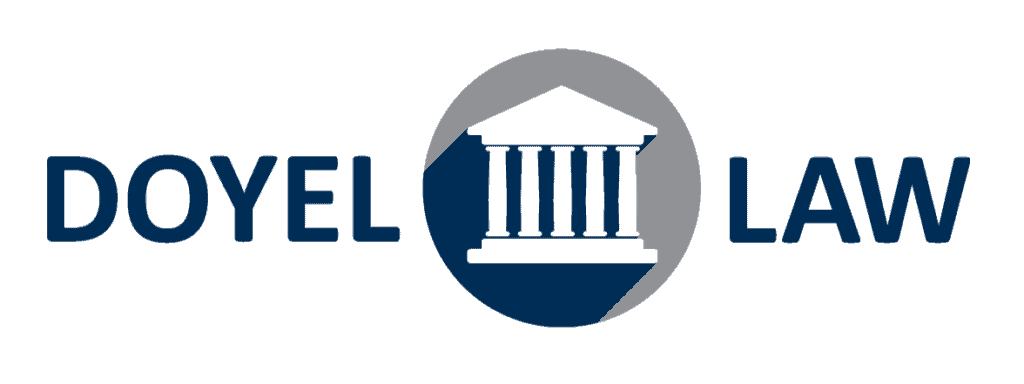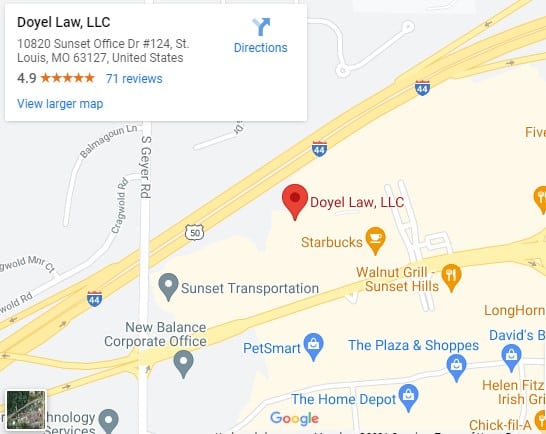What happens to your property if you file bankruptcy? If you believe that all of your property is exempt and will automatically become yours upon filing under Chapter 13 or Chapter 7, you are misinformed. Most personal property isn’t exempt and can be taken from you by the creditor who brought the case against you.
To protect your home and other non-exempt property, it is essential to distinguish between non-exempt and exempt property. This article provides a discussion on how nonelective exemptions work for debtors in bankruptcies filed under Chapter 7, how alternative exemptions affect debtors with income over a certain amount when filing under Chapter 13, and guidance for debtors looking to protect their non-exempt properties.
Before you declare bankruptcy, however, you may want to discuss your case with a qualified legal professional. There are numerous protections available to you from bankruptcy law. Understanding these protections can help you make the best choice for your situation. Let our Sunset Hills bankruptcy attorneys at Doyel Law help you .
A person’s assets
- A property is a tangible item or a piece of property.
- Additionally, it might be an object or a document.
- Buildings, automobiles, jewels, furniture, and appliances are all examples of property.
If you have any questions about property definition, it is advisable to get legal assistance from a bankruptcy attorney.
A bankruptcy court may make unique determinations about treating various kinds of property in a bankruptcy proceeding. For example, if you possess an equity-based property, it may be considered differently from other forms of property.
If you own many properties, the court may determine that they should all be treated as one. Additionally, the court may determine that some of your properties are not assets at all and hence will not be included in your bankruptcy estate. They will be considered as if they do not exist in this scenario.
To make things easy, the court will often attempt to categorize your assets as exempt or non-exempt. The majority of states have exemption lists that specify which categories of property are protected from liquidation during the bankruptcy procedure. If a state lacks such a list, federal law governs the determination of these exemptions.
What does the term “non-exempt property” mean?
Non-exempt property may either assist or hinder you during your bankruptcy case; therefore, you must follow all applicable regulations and educate yourself on how to preserve non-exempt property in bankruptcy.
This will provide a complete understanding of how bankruptcy works and the alternatives accessible to you if you decide to apply for bankruptcy protection.
Non-exempt assets
Following your bankruptcy filing, some of your property or assets may be liquidated to pay your creditors. These assets are classified as non-exempt property.
The principle of non-exempt property is straightforward: If you have valuable assets and file for bankruptcy, you should use the value of these assets to pay off a portion of the debts that will be discharged in your bankruptcy.
Value refers to the equity in these assets once any secured debts or registered liens are repaid. For example, if you own a $900,000 house with a $675,000 mortgage, your home will have $225,000 in equity. Subject to relevant exclusions, this equity will be lost.
Among the most often surrendered items to the trustee are the following:
- Second automobile
- Artwork, coin collections, and jewellery of exceptional value.
- Stocks, bonds, and other assets that are not registered with a financial institution
- Cash in the bank above what is necessary to meet short-term living expenses
- the equity in your house.
- A secondary dwelling, for example, a cottage or a vacation property
- a bequest
- A refund of taxes paid on income earned up to the filing date
Which property is exempt from bankruptcy?
A debtor must present with the court a list of exempt property. The phrase “exempt property” refers to debtor-owned property exempt from liquidation. The Bankruptcy Code gives states the authority to adopt their exemption legislation, which the debtor may choose over the federal exemptions.
It is best to consult with a skilled bankruptcy attorney who can explain the possible state-specific exemptions and how they relate to the federal exemptions.
In most cases, the exempt property includes the following:
- Automobiles, up to a specific value
- Essential clothing
- Household products and furnishings that are essential
- Appliances for the home
- Up to a particular amount in jewellery
- Pensions
- A percentage of the debtor’s equity in their house Tools necessary for the debtor’s trade or profession, up to a certain amount
- Unpaid but earned wages
- Public benefits accrued in a bank account include public assistance (welfare), social security, and unemployment compensation.
- Compensation for personal injury
Which Assets Are Not Exempt from Bankruptcy in Chapter 7?
In Chapter 7, you must sell all non-exempt property to satisfy as many debts as possible. Your assets are not exempt if the court deems that they are not necessary to maintain a fair standard of life.
Among the non-exempt assets are the following:
- Vacation houses or other non-primary residences
- Automobiles that are new or pricey
- Instruments of music that you do not need for employment
- Collections of exceptional value (stamp or coin collections)
- Heirlooms (antique furniture, etc.)
- Investing in non-retirement accounts
- Excellent piece of art
- Clothing that is too expensive
- Shoes or handbags by a designer
- Jewellery that has a resale value
Numerous debtors do not have non-exempt property. When this happens, the bankruptcy case is designated as a “no-asset” case, which means the trustee will not sell any of your personal property.
Is the Trusteeship Entitlement Complete?
Contrary to popular belief – and most television shows and films portray – a bank cannot strip you nude. Your bankruptcy trustee is prohibited from selling insignificant items or requirements for living or working.
Chapter 13 bankruptcy
In a Chapter 13 bankruptcy, you are not “liquidating” your assets. This implies that you maintain ownership of your property but may be required to pay a charge on a piece of it.
Certain items may be tax deductible only up to a certain level of equity. While each state has its own set of regulations, you may often qualify for an exception to your:
- Automobile
- Home and
- personal and household things.
Other property, such as luxury items (a boat or an expensive collection), will be taxed.
Unlike in Chapter 7, the trustee will not sell these assets. You will be forced to pay the fair market value of the non-exempt property as part of your repayment plan to satisfy unsecured creditors.
This may not be financially feasible for specific individuals, depending on their income and the value of their non-exempt assets. As a result, it would be sensible to sell them.
Your discretionary income affects the amount of unsecured debt you owe (for example, what you owe to credit card providers).
You will continue to make payments on collateralized debt obligations (such as your house and vehicle). Nonetheless, you will pledge the property as collateral, which means that if you do not pay the agreed-upon instalments, your creditor may repossess it.
Chapter 13 bankruptcy establishes a three- to five-year repayment plan to make up for missing payments, during which creditors are prohibited from seizing your car or foreclosing on your property.
Do you want to know more about what happens to your non-exempt property in bankruptcy?
It’s best to speak to an attorney to find out your rights. A Missouri bankruptcy attorney can answer any questions you have and ensure that you receive the proper advice. The law surrounding bankruptcy is not something that you should take lightly.
If you are trying to figure out how to proceed, retain a qualified and knowledgeable attorney who will provide the best legal advice. Call Doyel Law Firm now at 314-671-0959 or send us an email to schedule a consultation.



